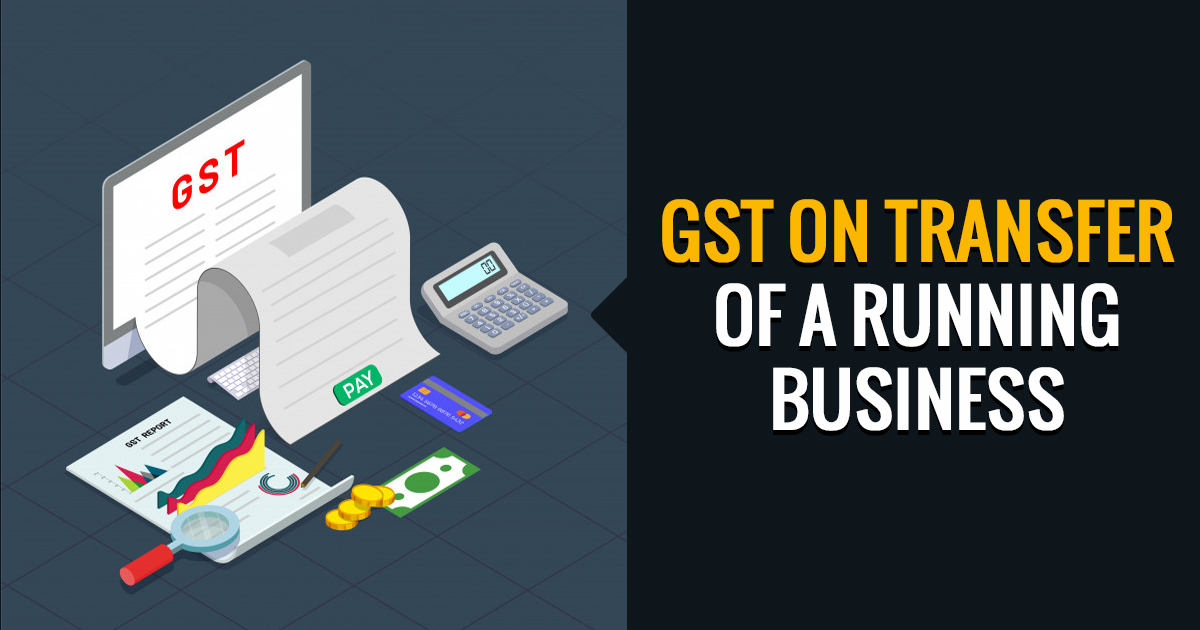13th Nov, 2025| 5 Min read.

GST implicattion on business transfer or merger?
Implication of GST on Transfer of business by the mode of Meger or normal transfer
When a business is transferred or merged, the Goods and
Services Tax (GST) implications depend on the nature of the transaction —
whether it is a transfer of a going concern, merger/amalgamation, or slump
sale/asset sale. Here’s a detailed breakdown:
1. Transfer of a
Going Concern
A “transfer of a going concern” means transferring a
business as a whole, including assets and liabilities, that is capable of being
carried on by the new owner.
GST Treatment:
- Exempt
Supply under Notification No. 12/2017-Central Tax (Rate) dated
28 June 2017, Entry 2:
“Services by way of transfer of a going concern, as a whole
or an independent part thereof” are exempt from GST.
- Implication:
- No
GST is payable on the transfer consideration.
- It
must genuinely be a “going concern” (i.e., a live business with
continuity of operations).
- The
transferee usually assumes assets, liabilities, employees, and ongoing
contracts.
- Input
Tax Credit (ITC):
- ITC
on inputs and capital goods used for the transferred business may be
transferred to the transferee under Rule 41 of the CGST Rules,
subject to filing Form GST ITC-02.
2. Amalgamation / Merger / Demerger
When two or more companies merge under a court or NCLT
order, the GST effects are as follows:
🧾 GST Treatment:
- Schedule
II, Entry 4(c) of the CGST Act:
- Transfer
of business assets is not treated as a supply if it occurs by
virtue of a merger or amalgamation under a court order.
- Effective
Date of Merger:
- If
the order specifies a “backdated” effective date, supplies made
between that date and the date of the order are treated as if made by the
transferee company.
- The transferee
is liable to pay tax on such supplies.
Input Tax Credit (ITC):
- ITC
balance can be transferred to the new entity under Rule 41(1)
using Form GST ITC-02.
- Proper
documentation of asset/liability transfer is essential.
3. Slump Sale or Asset Sale (Not Going Concern)
If the transfer is not a going concern, but rather a sale
of individual assets, then GST applies normally.
GST Implications:
- Treated
as supply of goods (if assets) or services (if rights or
goodwill).
- Applicable
GST rate depends on the nature of the asset (e.g., 18% on
goodwill, 5%/12% on machinery, etc.).
- ITC
reversal may apply to the seller for assets sold if previously
claimed.
4. Compliance Points
|
Transaction Type |
GST Payable |
ITC Transfer Allowed |
Key Form |
|
Transfer of Going Concern |
❌ Exempt |
✅ Yes |
GST ITC-02 |
|
Merger/Amalgamation (Court approved) |
❌ (subject to conditions) |
✅ Yes |
GST ITC-02 |
|
Slump Sale/Asset Sale (Not Going Concern) |
✅ Yes, based on asset type |
❌ Generally No |
Normal Returns |
Key Considerations
- Ensure
proper documentation and valuation of assets/liabilities.
- Inform
jurisdictional officer of change in business constitution.
- Amend
GST registration details or apply for a new registration (for transferee).
- Maintain
proof of continuity (contracts, staff, customers) for going concern
status.